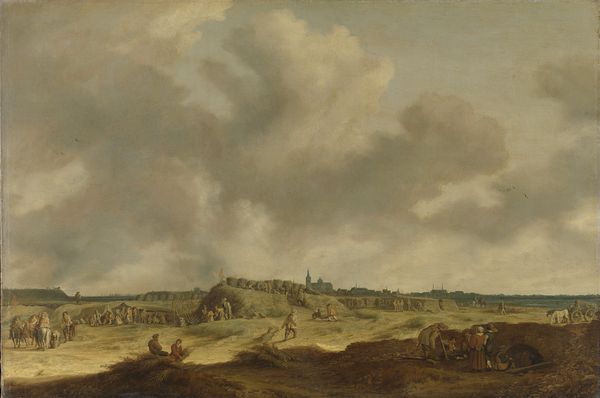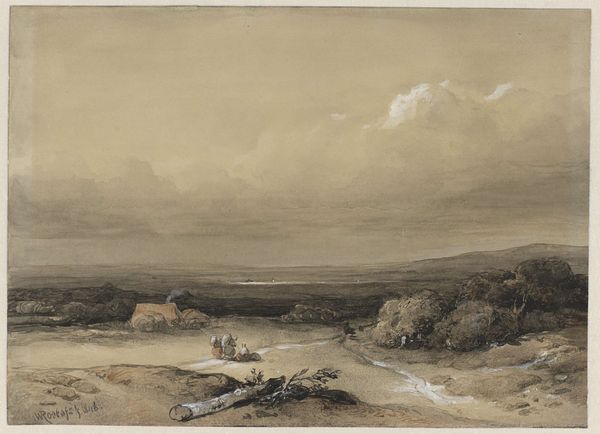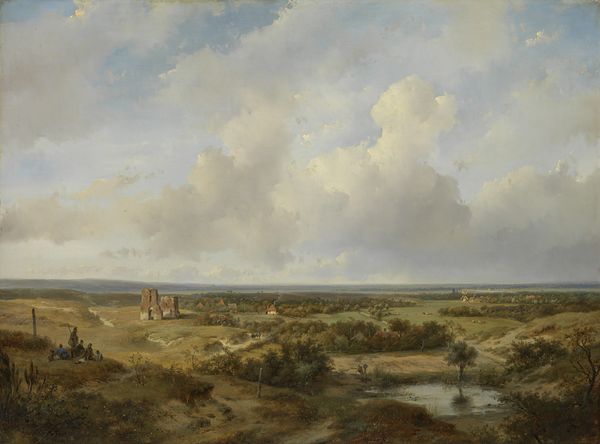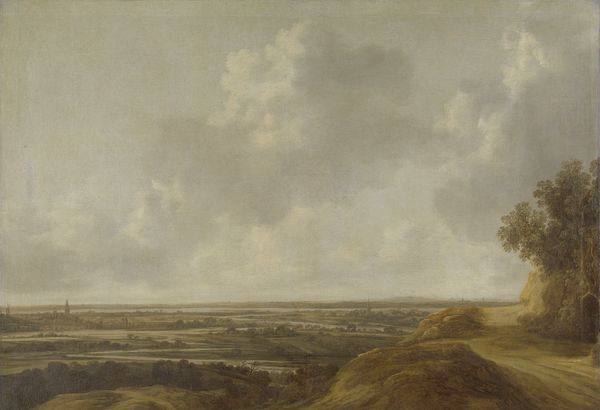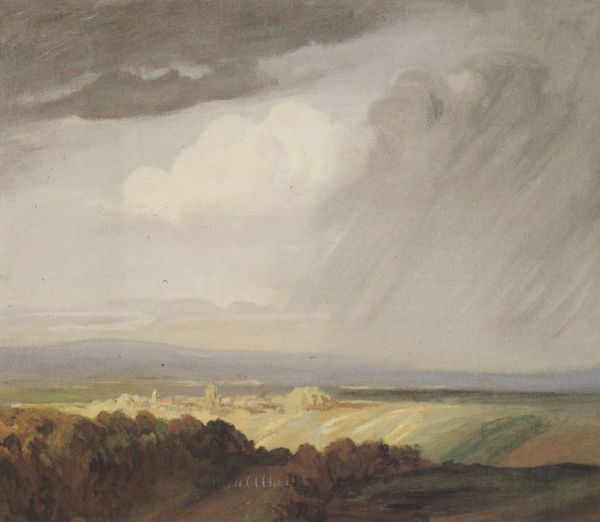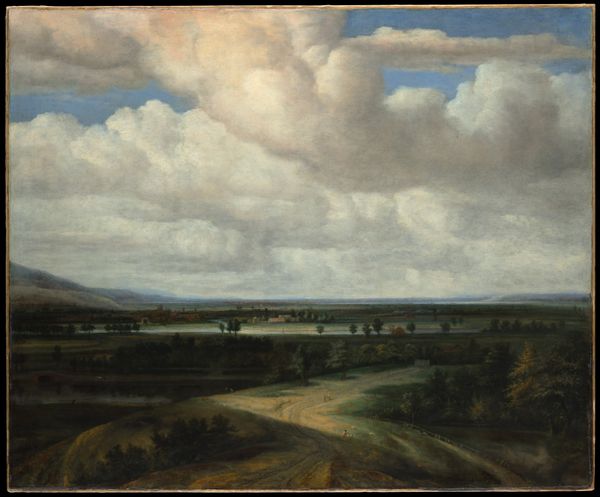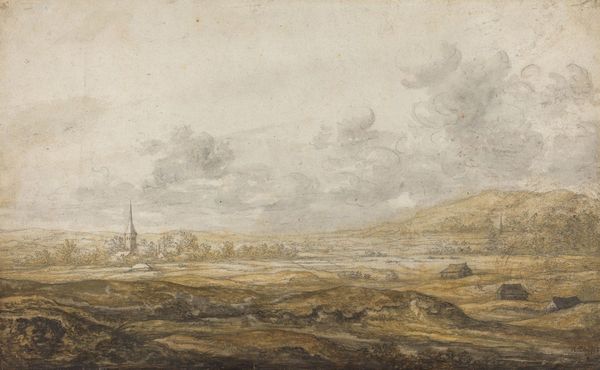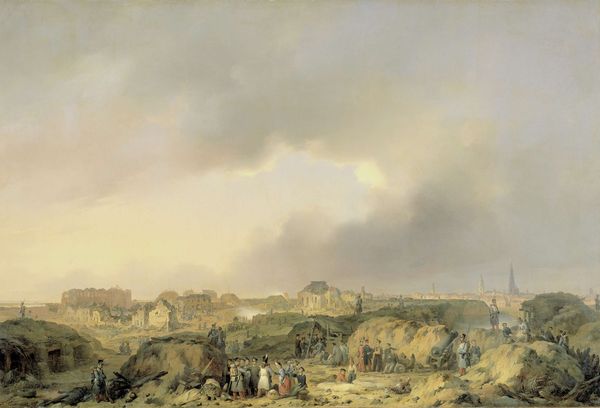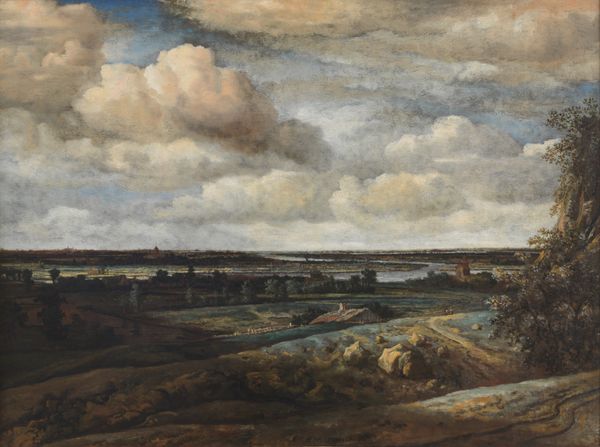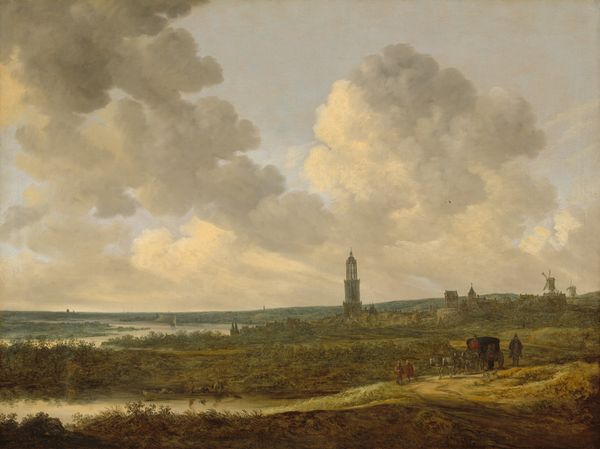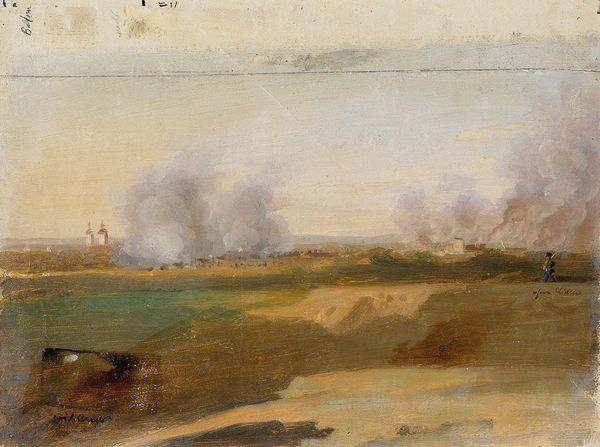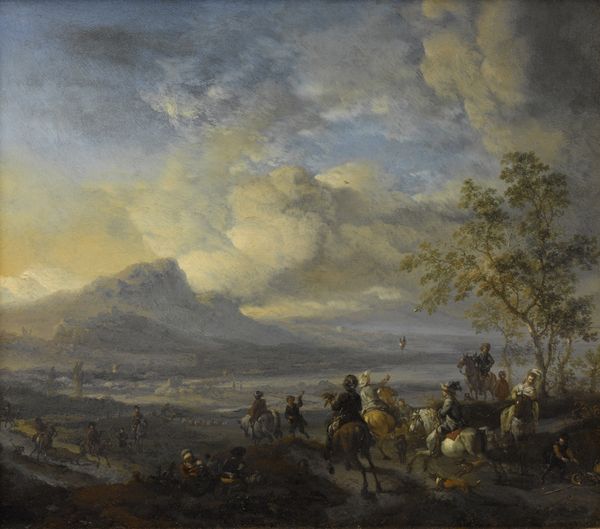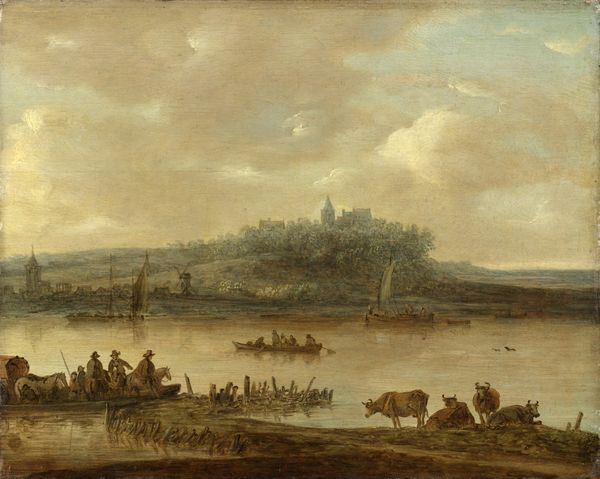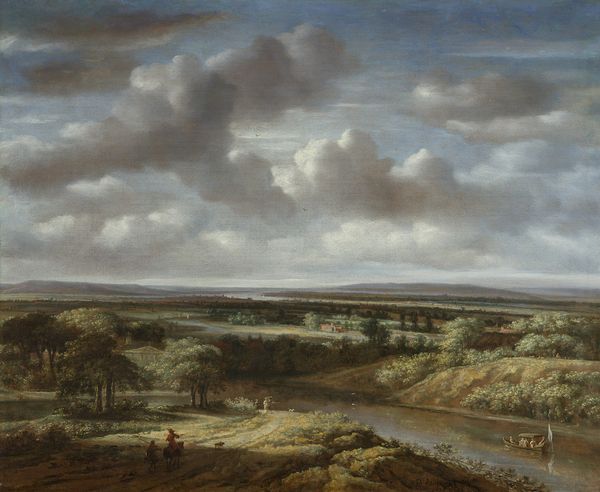
painting, oil-paint
#
baroque
#
painting
#
oil-paint
#
landscape
#
river
#
oil painting
#
cityscape
#
history-painting
Dimensions: height 153 cm, width 209 cm, height 178 cm, width 235.5 cm, depth 17 cm
Copyright: Rijks Museum: Open Domain
Editor: So, here we have Willem Schellinks' "The Battle of Medway," created around 1668 with oil paint. It strikes me as a very distant, almost clinical depiction of warfare, like looking at a map rather than experiencing a battle. What's your interpretation of it? Curator: From a materialist perspective, I see this work as less about individual heroism and more about the means of production that fueled this conflict. Look at the application of paint itself – the delicate brushstrokes used to render the smoke, the more deliberate application in the landscapes, reflecting the contrasting approaches to depicting fleeting moments versus permanent resources. What materials made the battle possible: the wood for ships, the metal for cannons? Editor: That’s interesting, I hadn’t considered the materials beyond just "oil paint". Are you saying Schellinks is making a comment on the economics of war? Curator: Precisely. Consider the Baroque period’s association with wealth, and the intense competition for global resources that characterized the 17th century. The details within are meticulously depicted: each wisp of smoke, the positioning of ships in the river. The labor that went into those ships alone… how does this relate to your sense of distance you observed? Editor: Well, now that you point it out, it feels like the painting is intentionally obscuring the human cost by focusing on the infrastructure of war itself, the ships and fortifications. It's less about individual suffering and more about the systems at play. Curator: Indeed. And how does this understanding of the "infrastructure of war" inform the composition itself, with its vast landscape dwarfing the figures engaging in combat? What are the implications of a "landscape" painting, whose subject is a military defeat? Editor: It completely reframes how I see the work! I was initially focused on the composition, but now I am curious about the timber and resources and laborers needed to stage that event! Curator: Exactly! It brings the normally unseen into view.
Comments
rijksmuseum over 2 years ago
⋮
In June 1667 English troops assembled at the town of Rochester on the River Medway, after news reached London that a Dutch fleet commanded by Michiel de Ruyter was heading towards the naval dockyards at Chatham. There was little, however, that they could do. Down river several English ships are on fire. De Ruyter took the English flagship the Royal Charles back to the Netherlands as war booty.
Join the conversation
Join millions of artists and users on Artera today and experience the ultimate creative platform.
